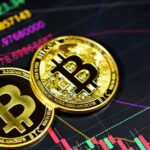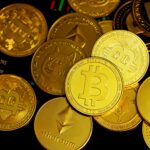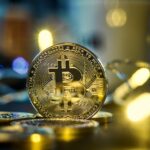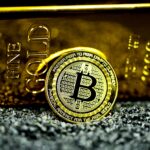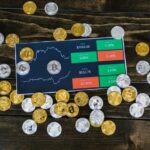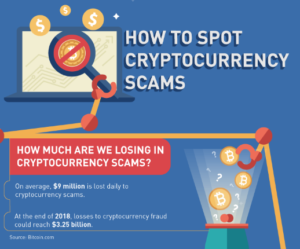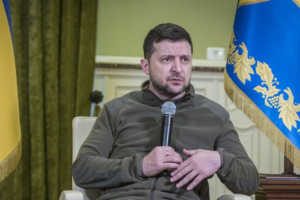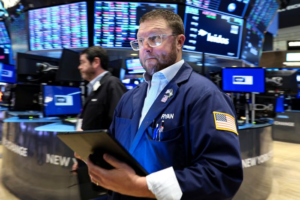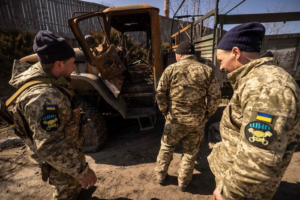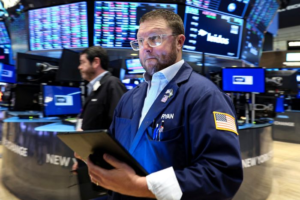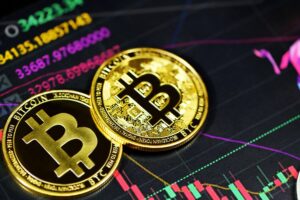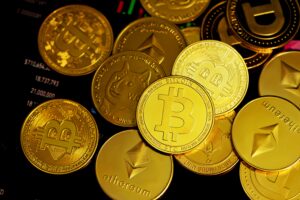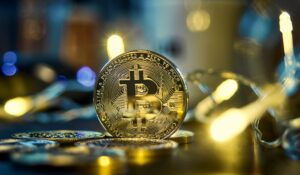

In January 2020,
Gang Chen
and about two dozen other professors and students from the Massachusetts Institute of Technology traveled to Shenzhen, China, to talk about overlapping university research, visit local companies and interview students interested in studying at MIT.
When Mr. Chen landed back at Boston’s Logan airport, Customs and Border Protection agents pulled him aside, seized his laptop and two cellphones and began asking him what he had been doing in China and why. Mr. Chen, a professor of mechanical engineering and an American citizen, told them he had been collaborating with a Chinese university and that all his research had been conducted in the U.S.
One year later, he was arrested on charges of concealing extensive ties to China in grant applications he had made to the U.S. government. It was one of a string of attention-grabbing cases brought by the Justice Department to address suspicions that the Chinese government was exploiting academic ties to engage in technological espionage.
Since then, the government’s pursuit of academics for alleged lying about their affiliations has faltered. The first such case to go to a jury ended in an acquittal. Out of 24 other cases, nine defendants have pleaded guilty. Charges have been dropped completely in six others, five of which officials said they dismissed because the scientists involved already had been sufficiently punished by being detained or otherwise restricted for a year.
The rest are pending, including one against a professor at Harvard University who went on trial on Dec. 14. By comparison, about 92% of the Justice Department’s overall white-collar prosecutions end in convictions.
In recent weeks, Justice Department officials have discussed whether to drop additional cases against academics, including Mr. Chen, according to people familiar with the matter. Mr. Chen has pleaded not guilty.

Professor Gang Chen, pictured in 2012, was accused of concealing extensive ties to China in grant applications to the U.S. government.
Photo:
Massachusetts Institute of Technology
The allegations against Mr. Chen and others, which came amid sharp anti-China rhetoric from the Trump administration, sparked criticism from some in academia that the Justice Department was improperly targeting American scientists of Chinese descent—something the department has denied. At a minimum, the cases showed that at times what the Justice Department saw as suspicious contacts between American professors and scientists and government officials in China were something the universities regarded as ordinary academic collaboration.
Attorney General
Merrick Garland,
questioned by a lawmaker in October about the cases, said the new head of the Justice Department’s national security division planned to review the department’s approach to countering threats posed by the Chinese government. A spokesman said that review would be completed soon, and the agency would provide additional information in the coming weeks.
Chinese officials have called on the U.S. to halt the effort. In a written statement, Liu Pengyu, a representative of the Chinese Embassy in Washington, said that China’s policies in connection with U.S. scientists “are no different from the common practice of other countries,” and that U.S. authorities should “stop stigmatizing China’s programs.” The embassy didn’t comment on the details of Mr. Chen’s case.
The U.S. effort seems to have helped Beijing attract Chinese-American scientists to China. More than half a dozen top researchers of Chinese descent said in interviews they had either moved from posts at U.S. universities to China or were looking for a chance to do so, saying they feared becoming a target of what they viewed as Justice Department overreach.
The federal government has estimated that each year more than $225 billion in intellectual property is lost to China. National-security officials have said publicly that U.S. universities are a key conduit in that loss of technology.
Beginning in about 2018, as the Trump administration criticized a variety of China’s trade and technology practices, the Federal Bureau of Investigation and U.S. agencies that sponsor much university research began flagging instances where grant recipients appeared to be trying to transfer sensitive technologies to China and to hide Chinese funding when applying for U.S. government support.
Separately, American officials urged universities to more thoroughly vet certain types of collaborative research with institutions in China, citing Chinese law that allows the government to tap any technology or research conducted under such collaborations to advance its own interests.
In 2019, federal prosecutors began charging academics with lying to U.S. grant-giving agencies about their China connections. In the summer of 2020, FBI Director
Christopher Wray
told lawmakers that the agency was opening a China-related counterintelligence case every 10 hours, and warned that Americans “are the victims of what amounts to Chinese theft on a scale so massive that it represents one of the largest transfers of wealth in human history.”
On Jan. 13, days before President
Biden’s
inauguration, prosecutors charged Mr. Chen with failing to disclose some of his ties to China to the Energy Department, which funded some of his research. They alleged he had served as an adviser to the Chinese government, to a Beijing-funded development company and to the board at Shenzhen’s Southern University of Science and Technology, or SUSTech, the institution with which MIT was collaborating.
As agents investigated Mr. Chen, they suspected he had pursued the collaboration at SUSTech not to benefit MIT but to benefit China, according to people familiar with the matter.
“The allegations of the complaint imply that this was not just about greed, but about loyalty to China,” said
Andrew Lelling,
then the U.S. attorney in Massachusetts, in announcing the case.

Andrew Lelling, then U.S. attorney for Massachusetts, announcing federal charges in connection with aiding China on Jan. 28, 2020.
Photo:
katherine taylor/Reuters
In a later filing, lawyers for Mr. Chen, who became a naturalized American citizen in 2000, described Mr. Lelling’s “speculation” about Mr. Chen’s loyalty as “grossly insulting.”
From the moment that charges were filed, MIT has offered vigorous defenses of its professor and the university’s SUSTech collaboration, saying such cooperation was crucial to advancing science. MIT President
Rafael Reif
called the arrest “deeply distressing and hard to understand.”
In a group letter to Mr. Reif, more than 200 of Mr. Chen’s colleagues wrote: “The complaint against Gang vilifies what would be considered normal academic and research activities, including promoting MIT’s global mission.”
A lawyer for Mr. Chen, Robert Fisher, said his client was grateful for the support and “looks forward to his day in court.”
Mr. Chen was born in 1964 and grew up in China’s Hubei province, where his mother had been forced to move during the Cultural Revolution. His university assigned him to study thermal power, which his father thought meant he would become a boilermaker. Instead a Chinese-American scientist recruited him to the University of California, Berkeley, where he earned a Ph.D. in mechanical engineering in 1993.
After stints at Duke University and the University of California, Los Angeles, he moved to MIT in 2001, assembling a large research group and churning out papers on topics such as how to use batteries to convert thermal energy into electricity. In 2013, he became head of MIT’s mechanical engineering department.

MIT, in Cambridge, Mass., has been cultivating ties with China since the mid-2010s.
Photo:
Adam Glanzman/Bloomberg News
By the mid-2010s, MIT was cultivating ties with China. It received $125 million from Chinese nationals and organizations between 2015 and 2019, more than any of its university peers, according to self-reported data collected by the Education Department. It also received around $11 million from now-blacklisted Chinese telecom giant Huawei Technologies Co., other Education Department data show. The U.S. government alleges that Huawei gear could be used by Beijing to spy globally, which Huawei has denied.
Chinese diplomats in New York often dropped by MIT to visit Chinese students, and they were in frequent contact with Mr. Chen, who was one of the most cited researchers in his field and was well-known in China. Those contacts, captured as the U.S. monitored Chinese diplomats, landed Mr. Chen on the U.S. government’s radar, according to people familiar with the matter.
The diplomats asked Mr. Chen to serve in various posts. Mr. Chen spurned some Chinese requests and accommodated others. In 2013, he declined to serve on an advisory panel for the Chinese government, according to people familiar with his activities. The next year, told it would involve minimal effort, he accepted the offer, but there is no record that he followed up or was paid for it, those people said.
In February 2016, China’s then vice minister of science and technology,
Wang Zhigang,
visited Boston and spoke to MIT officials and faculty, including Mr. Chen, both on campus and at a dinner with Chinese-American scientists. In the subsequent complaint against Mr. Chen, prosecutors cited notes he took on his phone that day as evidence of his efforts to advance China’s strategic goals.
The most recent convention of the Chinese Communist Party had “scientific innovation placed at core,” Mr. Chen had written, noting that the question was “how to promote MIT China collaborations.” Mr. Chen later said the notes merely reflected Mr. Wang’s words to him.
After the meeting, MIT’s associate provost for international affairs,
Richard Lester,
asked Mr. Chen how China’s science ministry could be a partner for MIT in China. “It would seem from today’s meeting that there is a possible path forward there,” Mr. Lester wrote in an email.
At MIT, officials were particularly interested in Shenzhen, a city adjacent to Hong Kong that had grown into an advanced manufacturing and technology center.
In 2016,
Ma Xingrui,
then-Communist Party secretary for Shenzhen, pushed visiting U.S. professors for partnerships between the city’s institutes and U.S. universities, including the Georgia Institute of Technology and Stanford University. He suggested to Mr. Chen that he consider a collaboration between MIT and SUSTech, the university the city’s government had set up to complement the economic growth.
Former national-security officials not connected to Mr. Chen’s case said SUSTech’s recruitment of scientists with experience at labs run by the U.S. Department of Energy, including the SUSTech’s past president, had raised suspicions among government security officials.
MIT officials viewed a SUSTech collaboration favorably, given SUSTech’s Western-trained faculty and its decision to teach many classes in English. They believed Shenzhen’s manufacturing prowess would be valuable for MIT students to experience.
U.S. investigators were concerned about Mr. Chen’s continued contacts with Chinese government officials as he kept them apprised of the SUSTech-MIT plans.

Shenzhen, a city adjacent to Hong Kong, has grown into an advanced manufacturing and technology center.
Photo:
bertha wang/Agence France-Presse/Getty Images
In January 2017, Mr. Chen accompanied a dozen MIT faculty members to SUSTech for a workshop to discuss areas in which the two schools could cooperate.
That February, a Chinese diplomat sent Mr. Chen another note that was flagged by prosecutors. In it, Mr. Chen was told that the science ministry had launched a new area of funding for “key special projects” between China and other governments. The diplomat encouraged Mr. Chen to consider the MIT-SUSTech collaboration as such a project, provided he obtain related U.S. government funding. Mr. Chen never responded.
One month later, Mr. Chen renewed a grant he has received for more than a decade from the Energy Department, to continue his research into how atoms vibrate and carry heat in plastics.
Mr. Chen was reimbursed for his travel to speak at a California conference hosted by ZGC Capital Corp., a Silicon Valley fund affiliated with Zhongguancun Development Group, a company funded by the city of Beijing that was a member of an MIT program that connects faculty with industry. Prosecutors later alleged he hid from the Energy Department a post ZGC offered him. He turned down the post but continued to work with the Beijing company through the MIT program, people familiar with the matter said.
In the fall of 2017, Mr. Chen took a paid position to mentor students at a middle school in Chongqing, whose headmaster,
Wu Xianhong,
was the founder of investment company Verakin and had endowed a fellowship at MIT. Mr. Chen gave a speech there, encouraging students not to fear science. Mr. Wu’s investment company advertised the affiliation, saying it offered a talent program that had “famous experts and professors from top universities” as tutors. Prosecutors said in the indictment that Mr. Chen hid that post from the U.S. as well. Lawyers for Mr. Chen have argued he was under no obligation to disclose it.
In June 2018, MIT and SUSTech struck a deal under which SUSTech agreed to pay MIT $25 million over five years. SUSTech would send some faculty members and students to MIT each year, and MIT faculty members and students would travel to Shenzhen. That fall, Mr. Chen took a sabbatical from MIT and spent part of the semester at SUSTech.
That November, MIT continued to expand its engagement with China, hosting with the Chinese Academy of Sciences a science and technology conference in Beijing. MIT’s president and Mr. Chen introduced the event.
The event included discussions between MIT professors and the founders of technology companies iFlytek Co. Ltd. and SenseTime. The following year, the U.S. Commerce Department added both firms to its blacklist, accusing them of playing a role in Beijing’s repression of Muslim minorities in northwest China. SenseTime described the allegations as unfounded, and iFlytek has said the U.S. move wouldn’t have a serious effect on its business. MIT has since terminated a research collaboration with iFlytek.
In 2019, Congress held a hearing in which U.S. national-security officials warned about scientific interactions with China.
That April, MIT said it wouldn’t renew its contracts with Huawei, and would intensify its vetting of projects that involved China, Russia or Saudi Arabia. Apparently, it didn’t think its January 2020 visit to SUSTech—which preceded Mr. Chen being questioned at the airport—would present any problem.

MIT President Rafael Reif spoke via video to a conference at Tsinghua University in Beijing on Oct. 8.
Photo:
Yi Haifei/China News Service/Getty Images
After Mr. Chen’s arrest early this year, Mr. Reif, MIT’s president, indicated that MIT and the government appeared to be construing the SUSTech collaboration very differently. “These funds are about advancing the work of a group of colleagues, and the research and educational mission of MIT,” he said. MIT has continued to pay Mr. Chen’s legal bills.
In a recent LinkedIn post, Mr. Lelling, the former Massachusetts U.S. attorney whose office charged Mr. Chen, said he thought the Justice Department should rethink its efforts to “avoid needlessly chilling scientific and business collaborations with Chinese partners.”
Meanwhile, professors at MIT and SUSTech are continuing their collaborations. University officials say they are still working to figure out how to respond to the growing calls to decouple the U.S. and Chinese economies while maintaining a welcoming research environment.
At an October hearing on research security before a House subcommittee, MIT’s vice president for research,
Maria Zuber,
said law enforcement and the university would benefit from better understanding each other, given the differences in the ways they work and share information. “It’s a work in progress,” she said.
—Lekai Liu contributed to this article.
Write to Aruna Viswanatha at Aruna.Viswanatha@wsj.com and Sha Hua at sha.hua@wsj.com
Copyright ©2021 Dow Jones & Company, Inc. All Rights Reserved. 87990cbe856818d5eddac44c7b1cdeb8


